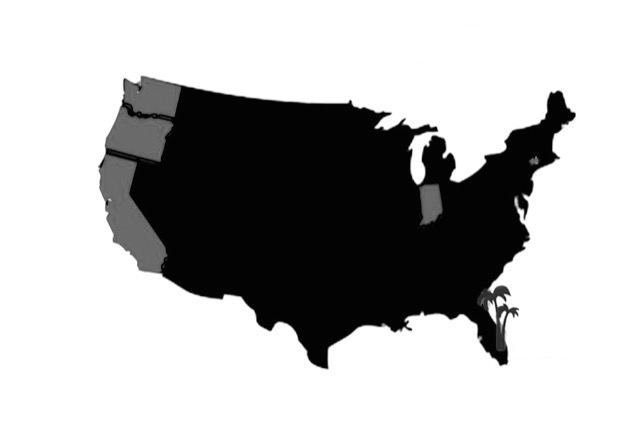School shootings require attention, discourse
Gwen Snyder | Views Layout Editor
Red-flag laws are tools which temporarily prevent a person from buying guns and confiscate any guns they already have while local law enforcement determines how serious a threat they pose. Five states – California, Indiana, Oregon, Connecticut and Washington – already have these laws in place.

Nikolas Cruz, a 19-year-old with a police-documented history of disturbing behavior and violent threats, murdered 17 people at Stoneman Douglas High School in Parkland, Florida, with an AR-15 semi-automatic rifle on Feb. 14. He owned this rifle in accordance with Florida law. He could have owned it in accordance with the laws of almost all other states, including Louisiana. The system we use to decide who is allowed to buy and keep a gun needs an overhaul that empowers communities to seize the weapons of dangerous individuals like Cruz.
Cruz bought an AR-15 after passing an FBI background check. A lawyer representing the owners of the shop that Cruz bought his gun from said the shop “did every right pertaining to the sale” and that there were “no red flags.” If Cruz raised no red flags, then the system in place simply is not good at catching them, and supplementing it with “common sense reforms” will simply be ineffective.
About half of mass murderers show signs of mental illness, but mental illness on its own without certain red flags doesn’t make somebody more susceptible to violence than the average person. Because the symptoms people who commit school shootings display usually don’t fall under a specific diagnosis, they would not be prevented from buying a firearm by restrictions on those diagnosed with mental illness.
https://www.instagram.com/p/BfbzSaJncbR/?taken-by=marchforourlives
Preventing mentally ill people from buying guns scapegoats mental illness instead of addressing the detached system at the state and federal levels that allows dangerous people to buy and keep guns. Factors present in potentially dangerous people, such as a fascination with violence, emotional trauma and sociopathic personalities, are more easily spotted by community members than by bureaucrats armed with only a database.
This week in Thibodaux, Louisiana, a 17-year-old student accused of planning a school shooting was arrested. The incident was one of several copycat threats made in the wake of the shooting at Stoneman Douglas. Not every one of these threats warranted an arrest, and in the time it takes local law enforcement to decide if they have the grounds to arrest, a potentially dangerous person still has a gun. This is where red flag laws come in to play.
Red flag laws are tools which temporarily prevent a person from buying guns and confiscate any guns they already have while local law enforcement determines how serious a threat they pose. Five states – California, Indiana, Oregon, Connecticut and Washington – already have these laws in place.
It is not enough just to give communities the legal tools to protect themselves, though. Public awareness campaigns are necessary to increase the public’s engagement with the issue.
If gun control is "taking your rights away," maybe take some time to think about my classmates and thousands of others who don't have rights, let alone lives anymore due to gun violence
— carly (@carlynovell) February 19, 2018
The public’s engagement is also limited by the nature of the public discourse about mass shootings, which has ceased to be a dialogue. The call-and-response arguments between the pro- and anti-gun control camps have the predictability of small-talk on a national scale. Suggesting legislation which is more aggressive than common sense measures could help to maintain public engagement with the issue of mass shootings, which tends to wane until another shooting occurs.
It is the passionate expressiveness of the students of Stoneman Douglas High School which stand in stark opposition to events when the focus of public discourse shifts elsewhere. Passionate words and ideas come best from those for whom a problem is reality, not just something which appears in headlines. As long as guns exist, this will be a reality for all students.
This is an opinion article and does not reflect the views of The Tulane Hullabaloo. Austin is a freshman at Newcomb-Tulane College. He can be reached at arodriguez1@tulane.edu.
Your donation will support the student journalists of Tulane University. Your contribution will allow us to purchase equipment and cover our annual website hosting costs.



